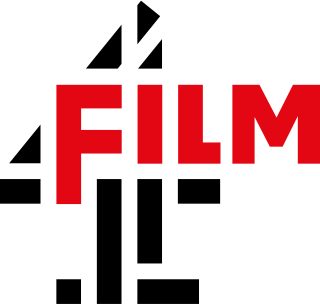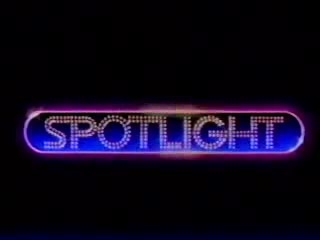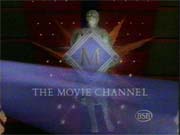Related Research Articles
Regular television broadcasts in the United Kingdom started in 1936 as a public service which was free of advertising, which followed the first demonstration of a transmitted moving image in 1926. Currently, the United Kingdom has a collection of free-to-air, free-to-view and subscription services over a variety of distribution media, through which there are over 480 channels for consumers as well as on-demand content. There are six main channel owners who are responsible for most material viewed.
Sky Cinema is a British subscription film service owned by Sky Group. In the United Kingdom, Sky Cinema channels currently broadcast on the Sky satellite and Virgin Media cable platforms, and in addition Sky Cinema on demand content are available through these as well as via Now TV, BT TV and TalkTalk TV.
Sky One was a British pay television channel operated and owned by Sky Group. Originally launched on 26 April 1982 as Satellite Television, it was Europe's first satellite and non-terrestrial channel. From 31 July 1989, it became Sky One and broadcast exclusively in the United Kingdom and Ireland as British Sky Broadcasting's flagship channel, being the most watched television service in history. It existed until 1 September 2021, when it closed down as part of a restructuring with its EPG position taken by Sky Showcase and much of its content library moved to Sky Max.

Film4 is a British free-to-air television network owned by Channel Four Television Corporation launched on 1 November 1998, devoted to broadcasting films. While its standard-definition channel is available on Freeview and Freesat platforms, its high-definition variant is offered only as a pay television service.

Television X (TVX) is a series of adult pay-per-view television channels in the United Kingdom owned by MG Global Entertainment (Europe) Limited. Until 2020, it was owned by Portland TV which was a subsidiary of Richard Desmond's publishing company Northern & Shell until 2016. All of the programmes on the main Television X channel are filmed and produced in the United Kingdom.
Sky Television plc was a public limited company which operated a nine-channel satellite television service, launched by Rupert Murdoch's News International on 5 February 1989. Sky Television and its rival British Satellite Broadcasting suffered large financial losses, and merged on 2 November 1990 to form British Sky Broadcasting. A programming merger took effect on 1 December 1990.

Spotlight was an American premium cable television network that was founded by the Times Mirror Satellite Programming Company unit of the Times Mirror Company, and owned as a joint venture with Storer Communications, Cox Cable and Tele-Communications Inc. (TCI). The channel's programming focused mainly on theatrically released motion pictures, with the only scheduling deviation being of monthly specials previewing films set to air on the channel.
There are four major forms of digital television (DTV) broadcast in the United Kingdom: a direct-to-home satellite service from the Astra 28.2°E satellites provided by Sky UK, a cable television service provided by Virgin Media ; a free-to-air satellite service called Freesat; and a free-to-air digital terrestrial service called Freeview. In addition, an IPTV system known as BT Vision is provided by BT. Individual access methods vary throughout the country. 77% of the United Kingdom has access to HDTV via terrestrial digital television. Satellite is the only source of HDTV broadcast available for the remaining 23%.

The Movie Channel was a British television service which only aired movies. Launched on British Satellite Broadcasting, The Movie Channel was a predecessor of some of the Sky Movies channels, having survived the 1990 merger with Sky Television, another satellite service launched by Rupert Murdoch's News International.

Lifestyle was a British daytime television channel aimed at women and families. It was broadcast on cable and from February 1989 on transponder 5 of the Astra satellite.
High-definition television in the United Kingdom is available via cable, IPTV, satellite and terrestrial television. The first high-definition broadcasts began in late 2005 and since then the number of channels available to view has grown to a maximum of 87 that can be viewed on pay-TV service, Sky.
Premiere was the first subscription movie channel launched on 1 September 1984, which broadcasts to Europe via satellite alongside the other services of that time including Sky Channel, Music Box and The Children's Channel.
Wire TV was a British cable television channel produced by United Artists Cable and featured a range of entertainment, lifestyle and sports programming. Branded as "The Cable Network" was originally set up and funded with £25 million by Cable Program Partners (CPP1), a consortium of British cable operators including NYNEX, US West and Comcast to bolster alternative content from the satellite-dominated multichannel environment of the time.

Great! Movies is a British free-to-air television channel owned by Narrative Entertainment UK Limited that broadcasts across the UK and Ireland showing films and related content. The channel is transmitted on all the major broadcast platforms in the UK - terrestrial, satellite and cable. The channel is only broadcast in standard-definition.
Home Video Channel (HVC) was a British cable television service devoted to broadcast low-budget movies from 8.00pm to midnight, and the owners also operated The Adult Channel which started on 31 January 1992.
The distribution of cable television around the world:
This is a timeline of cable television in the United Kingdom.
This is a timeline of the history of Sky Cinema.
References
- ↑ "Subscription tv by cable". Wireless World. November 1981.